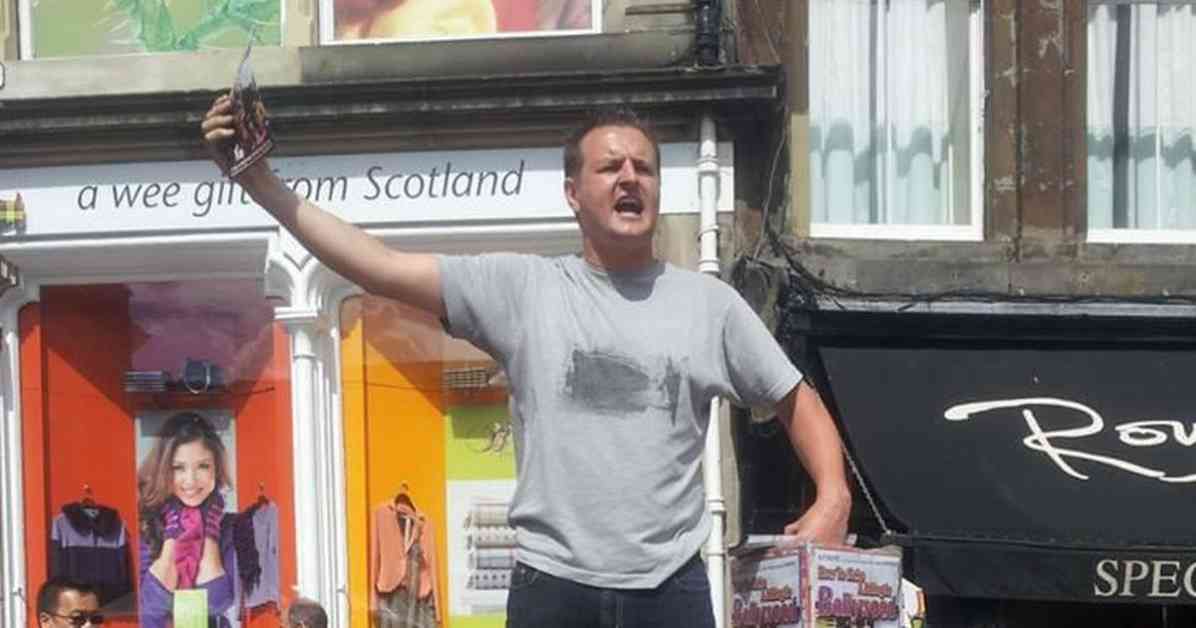An Outlander actor has raised concerns about the hefty cost of advertising his show during the Edinburgh Festival Fringe. Scott Kyle, known for his role as Ross in the popular historical drama, brought ‘Singin’ I’m No A Billy, He’s a Tim’ to the festival to commemorate the play’s 20th anniversary. However, the 41-year-old actor from Rutherglen expressed dismay over the expenses associated with promoting shows, revealing that he had to shell out over £16,000 for advertising alone. This significant financial burden could potentially exclude younger performers who may not have the resources to afford such costs.
Scott Kyle highlighted the issue of a single company, Out of Hand, having a monopoly on billboards across the capital, limiting participants’ options for advertising their shows. While the company defended its pricing as ‘accessible and sustainable,’ Scott Kyle’s experience shed light on the challenges faced by performers in navigating the advertising landscape at the Fringe.
The actor shared his experience of initially purchasing billboards for £7,500 before being contacted by Out of Hand, who informed him that his billboards had to be removed and replaced with their own. This added an additional expense to his advertising budget, leading him to reluctantly spend £9,000 on other advertising materials. Scott Kyle acknowledged that while he could have sought cheaper options from other companies, the monopoly situation limited his choices, ultimately impacting the affordability of advertising for many participants, especially emerging talents.
Scott emphasized the broader implications of the escalating advertising costs, particularly for younger performers who may struggle to cover such expenses. He noted that the changing landscape of flyering and poster regulations at the Fringe, coupled with the monopoly on advertising companies, has made it increasingly challenging for artists to promote their shows effectively. The financial strain of advertising, combined with other costs like accommodation and production expenses, could deter many individuals from participating in the Fringe or returning in subsequent years.
The producer’s concerns extended beyond his personal experience, as he expressed empathy for fellow performers who face difficulties in securing ticket sales amidst the competitive advertising environment. Over the years, he witnessed the emotional toll on artists who grapple with low attendance and financial pressures, highlighting the need for more accessible and affordable advertising options at the Fringe.
In response to Scott Kyle’s criticisms, Out of Hand defended their advertising scheme as accessible and sustainable, with prices starting from £27.50 plus VAT per poster for a four-week display period. The company emphasized their partnership with the City of Edinburgh Council to operate the official Edinburgh Festival Fringe outdoor advertising scheme, which aims to provide participants with authorized advertising options on council-owned property.
While Out of Hand acknowledged the necessity of removing flyposting in designated areas, they underscored their efforts to offer a range of advertising sites for Fringe participants, including council-owned spaces and private property with permission. Despite their commitment to making the advertising scheme accessible, the company’s monopoly on outdoor advertising could limit participants’ choices and hinder competition in the market.
The discussion surrounding the advertising costs at the Fringe raises broader questions about accessibility, affordability, and fair competition for performers. As the festival continues to evolve and attract a diverse range of talent, it becomes imperative to address the financial barriers that may deter emerging artists from showcasing their work. By exploring alternative advertising models, fostering competition among advertising companies, and prioritizing the needs of participants, the Fringe can uphold its reputation as a vibrant and inclusive platform for creativity.
In conclusion, the challenges faced by Scott Kyle and other participants in navigating the advertising landscape at the Edinburgh Festival Fringe underscore the importance of addressing affordability and accessibility in promoting shows. As the festival continues to grow in popularity and diversity, ensuring fair competition, diverse advertising options, and reasonable pricing will be essential to supporting the creative community and fostering a vibrant cultural scene at the Fringe.













